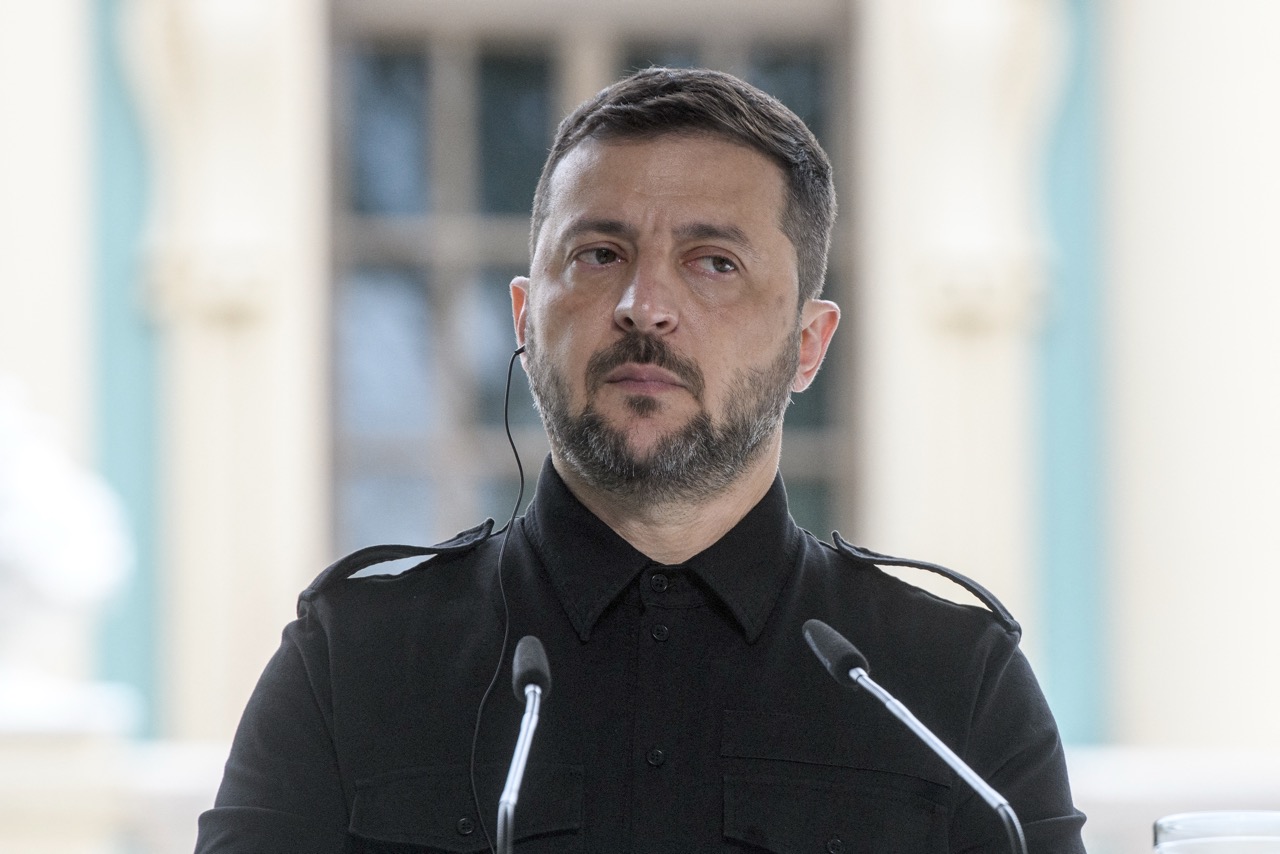During an August 24 press conference with Canadian Prime Minister Mark Carney, Ukrainian President Volodymyr Zelensky stated, "The issue of the physical presence of foreign forces is important to us," when discussing security guarantees for Ukraine after the war.
Prime Minister Carney, on his first visit to Ukraine since taking office in March, added that Canada hasn't ruled out sending troops to Ukraine as part of these security assurances.
"We need an end to the fighting, a ceasefire, and a truce to stop the killing," Carney emphasized.
 |
Ukrainian President Volodymyr Zelensky at a press conference on 24/8 in Kyiv. Photo: *AFP* |
Carney stressed that a core element of Ukraine's security guarantees is building a strong Ukrainian military. Canada is working with allies to clarify security assurances for Kyiv on land, at sea, and in the air.
European countries have repeatedly mentioned the possibility of deploying a multinational security force to Ukraine to ensure security after the war. On 5/4, President Zelensky confirmed that the UK and France, leading this effort, had "made real progress" in outlining the deployment method.
On 19/8, American media, citing informed sources, revealed that about 10 European countries are prepared to send forces to Ukraine once peace is restored. European officials have also discussed the size of the force and potential deployment locations.
Initially, a multinational force primarily composed of European soldiers, including hundreds of British and French troops, would deploy away from the front lines to assist the Ukrainian army with training and replenishing personnel.
In the later stages, the involved parties want US support through intelligence sharing, border monitoring, weapons supply, and possibly air defense guarantees. However, US President Donald Trump has repeatedly emphasized that the US will not send troops to Ukraine, leaving Europe as the "first line of defense" in this matter.
President Trump has recently intensified mediation efforts to end the war in Ukraine. He held a summit with President Putin on 15/8 in Alaska and subsequently met with European leaders and President Zelensky at the White House on 18/8.
These events raised hopes for a direct meeting between Putin and Zelensky. Both leaders initially expressed openness to this option, but subsequent developments suggest that the prospects for peace talks are fragile.
On 21/8, Russia stated that Ukraine seemed uninterested in "lasting peace," accusing Kyiv of seeking security guarantees entirely incompatible with Moscow's demands. Meanwhile, Zelensky criticized Russia for "trying to avoid meeting," suggesting that Moscow doesn't want to end the war.
Thanh Danh (*AFP, Kyiv Independent, Ukrainska Pravda*)












